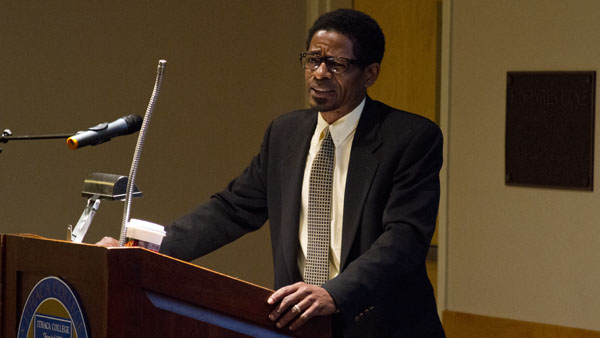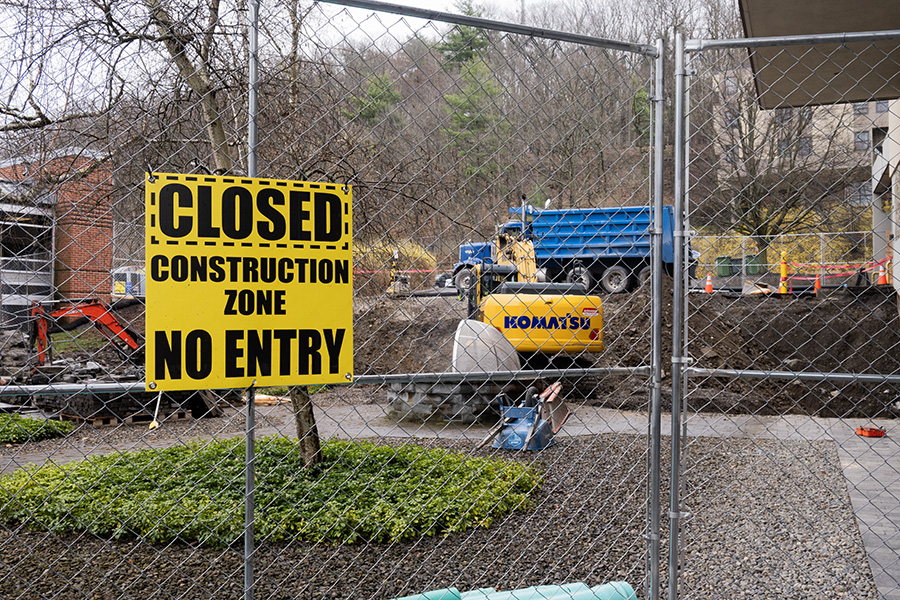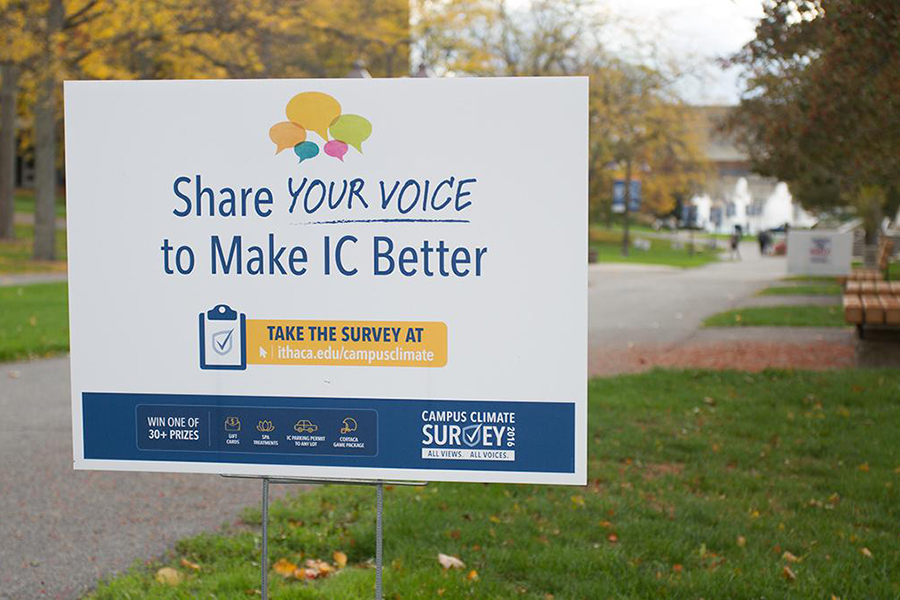Bruce D. Haynes, associate professor of sociology and African-American and Africana studies at the University of California, Davis, spoke on March 25 on the events that have shaped black and Jewish identities and elements that characterize the relationship between them.
Rebecca Plante, associate professor of the sociology department and women’s studies minor program at Ithaca College, introduced Haynes as an expert on race and ethnicity, community and urban sociology. Haynes wrote a book titled “Red Lines, Black Spaces: The Politics of Race and Space in a Black Middle-Class Suburb,” which discusses historical documents of public census records, interviewing and participant observation in attempt to understand how racialization happens in Yonkers, N.Y.
The event was a collaborative effort between the sociology department and Jewish studies minor program. Before the presentation began, Plante introduced Haynes and highlighted his experiences with black and Jewish individuals and how interviews influenced his long-term research about the topic.
“It’s a set of narratives and a set of stories and intersections, and I’m really excited and honored to have my colleague and my friend Dr. Bruce Haynes here to share his stories with you,” Plante said.
Haynes said he grew up in Harlem, immersed in a culture of New York City. In 1984, he said, tensions grew as civil rights activist the Rev. Jesse Jackson referred to New York City on an “off-the-cuff comment” as a “Hymietown” and Jews in the city as “Hymies.” Hayes said things began to unravel between blacks and Jews in New York City when he was in graduate school in the 1990s. During this time period, he said, a number of black students at colleges were inviting ministers who worked with Louis Farrakhan, minister and leader of an African-American religious movement, to speak.
“This led to a meltdown at a number of schools, in particular Wellesley College [in Wellesley, Mass.], where a scholar wrote a book called ‘Jewish Onslaught,’ which galvanized these conflicts and this public perception that there is a material relationship between blacks and Jews,” Haynes said.
In his research, Haynes found that the media played a huge role in characterizing the relationship between blacks and Jews in the ’90s. For example, in 1995, a conflict between blacks and Jews took place on 125th Street in the middle of Harlem between patrons and employees of a Jewish-owned store, Freddy’s Fashion Market, and a black-owned store, The Record Shack. Haynes found that the media was biased in depicting this story as the Jewish owner raising the rent on the black tenant, driving him out of business and resulting in two to three weeks of protesting.
“In certain political contexts, there would be meltdowns, but even the way the media depicted those meltdowns often talked in totalizing ways about the black and Jewish communities,” Haynes said. “In fact, on a daily basis in New York, blacks and Jews got along quite civilly.”
Rebecca Lesses, associate professor and Jewish studies coordinator, said she thought the most interesting part of Haynes’ talk was when he referred to the different kinds of Ethiopian Hebrew Israelite groups in different cities across the U.S. Some of these groups, she said, are interested in interacting with the rest of the Jewish community, while others are more interested in preserving their own particular traditions.
“These are communities I don’t know anything about, so it was fascinating to learn more,” Lesses said.
It’s common for people who have some Jewish ancestry to become interested in Judaism regardless of their race or other ancestries, Lesses said.
“They might have been raised as a Christian, but then they’re like, ‘Oh, there was my great-uncle, I want to find out more about this,’ and then sometimes get really involved in becoming Jewish,” Lesses said.
In the media today, well-known individuals have been identified as black and Jewish, such as Lisa Bonet, Lenny Kravitz and Sophie Okonedo.
“One of the preoccupations is to show that, in fact, there is a legitimate place for people of color in a Jewish world,” Haynes said. “They are all over, they are mainstream and there are those who converted.”







